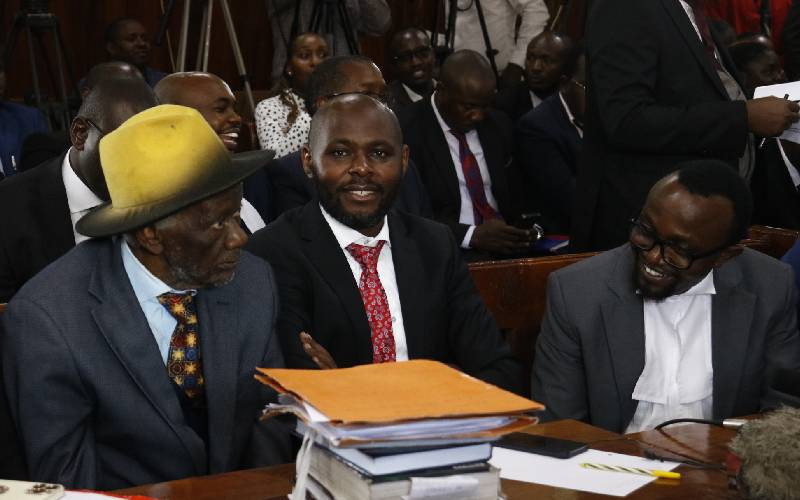×
The Standard e-Paper
Stay Informed, Even Offline

A simple but fatal mistake denied impeached Deputy President Rigathi Gachagua a critical chance to halt High Court proceedings hours before three Judges delivered the ruling.
When Gachagua moved to the Court of Appeal on October 26, 2024, he named the Attorney General, National Assembly, Senate, the two Speakers of Parliament, President William Ruto, the Law Society of Kenya, and Kithure Kindiki as respondents.